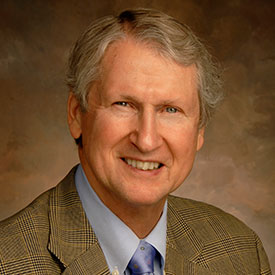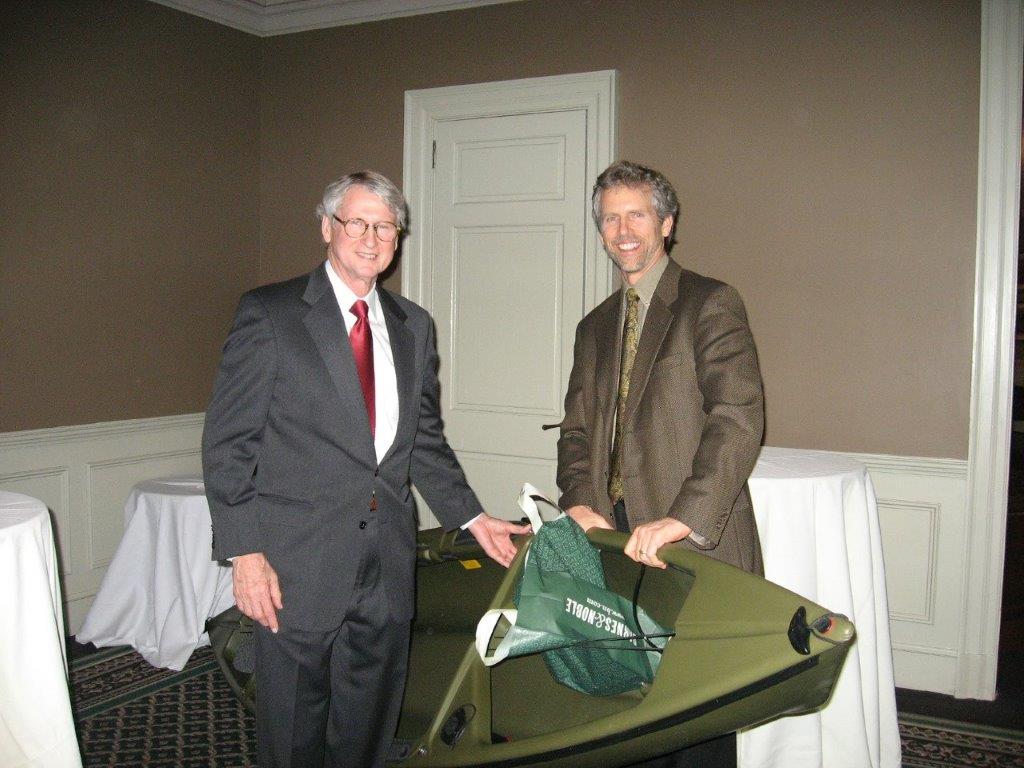 Remembering urologist and former Medical Alumni Association President Albert Tully Jr., M.D.Ever since the death of his father, Albert Tully Jr., M.D., on June 3, Scott Tully Sr., M.D., has received daily condolences from fellow physicians, nurses, and patients. “Everyone who met him has told me, ‘Your dad was a great guy,’” Tully says. “I’m proud of who he was and the legacy he left behind.”
Remembering urologist and former Medical Alumni Association President Albert Tully Jr., M.D.Ever since the death of his father, Albert Tully Jr., M.D., on June 3, Scott Tully Sr., M.D., has received daily condolences from fellow physicians, nurses, and patients. “Everyone who met him has told me, ‘Your dad was a great guy,’” Tully says. “I’m proud of who he was and the legacy he left behind.”
Albert Tully died after a nearly 10-year battle with Parkinson’s disease. He was a fixture around Birmingham with his late wife, Antoinette “Toni” Tully, a well-known local artist to whom he was married for 53 years. The younger Tully says his father would jokingly introduce himself as Toni Tully’s husband.
A 1964 graduate of the Medical College of Alabama, Albert Tully served as president of the Jefferson County Medical Society in 1989; was a member of the University of Alabama Medical Alumni Association for 30 years, including a term as president from 2005-2007; and received the Distinguished Alumni Award from the UAB National Alumni Society in 2006.
His wife’s death in 2010 preceded the Parkinson’s disease diagnosis, but Tully never became bitter about his circumstances. He retired as a practicing urologist following his wife’s death. He enjoyed a 41-year career at Urology Centers of Alabama (formerly Urology Associates), where he was a founding partner and where he mentored generations of School of Medicine graduates and fellow urologists.
Lee Hammontree, M.D., is one of those mentees. Hammontree, a urologist at Urology Centers of Alabama, worked with Albert Tully for more than a decade. He notes the elder Tully was always quick with a kind word or advice, even when they worked for competing practices.
“I thought the world of him, and he was a real hero to me in so many ways,” Hammontree says. “Dr. Tully could always be counted on to be one of the hardest-working urologists in our group. He was always willing to do the right thing. He was humble as well as confident.”
 Left to right: The late Albert Tully Jr., is remembered as an outstanding physician and a leader in the medical community. His son Scott is carrying on the family tradition as a practicing urologist, while his son and Albert Tully’s grandson, Albert Scott Tully Jr. (not pictured), is currently a medical student at UAB.Hammontree says Albert Tully also made a lasting impression because of his commitment to physical fitness. “There were times when a group of us would go on medical meeting trips. While some of us would sit and have drinks on the beach, he would go swimming parallel to the beach for 30-45 minutes,” Hammontree says. “When other people made the excuse to take the elevator, Dr. Tully would take the stairs.”
Left to right: The late Albert Tully Jr., is remembered as an outstanding physician and a leader in the medical community. His son Scott is carrying on the family tradition as a practicing urologist, while his son and Albert Tully’s grandson, Albert Scott Tully Jr. (not pictured), is currently a medical student at UAB.Hammontree says Albert Tully also made a lasting impression because of his commitment to physical fitness. “There were times when a group of us would go on medical meeting trips. While some of us would sit and have drinks on the beach, he would go swimming parallel to the beach for 30-45 minutes,” Hammontree says. “When other people made the excuse to take the elevator, Dr. Tully would take the stairs.”
Tully also made a lasting impression on another fellow urologist and former MAA president, Walter Pittman, M.D., whom he first encountered in 1960. Albert Tully spent two years from 1965-1967 as a doctor in the U.S. Navy at Camp Lejeune, and Pittman says Tully recalled his time in the military fondly. He also describes his friend as a “deep thinker” and “honest and straightforward.”
“He was a good man,” Pittman continues. “He was a good family man. He was a good parent. He was a good doctor, and he did a lot for the medical community in Alabama.”
Another lasting impact Albert Tully will have on Alabama’s medical community is the Albert J. Tully Jr., M.D., Family Medical Endowed Scholarship he established in 2017. Scott Tully says his father created the scholarship because he remembered what it was like to go through medical school with little-to-no income. “He was always very loyal to the medical school,” Tully adds. “It was a big part of his life.”
The endowed scholarship ensures that the Tully family name, which now spans three generations of alumni and aspiring physicians (Albert Tully’s grandson, Albert Scott Tully Jr., is currently in medical school at UAB), will inspire medical students for years to come. “The scholarship came from a man who truly loved the practice of medicine and practiced it in a compassionate way,” Scott Tully says. “He wanted that to be part of his legacy.”
By Ryan Broussard